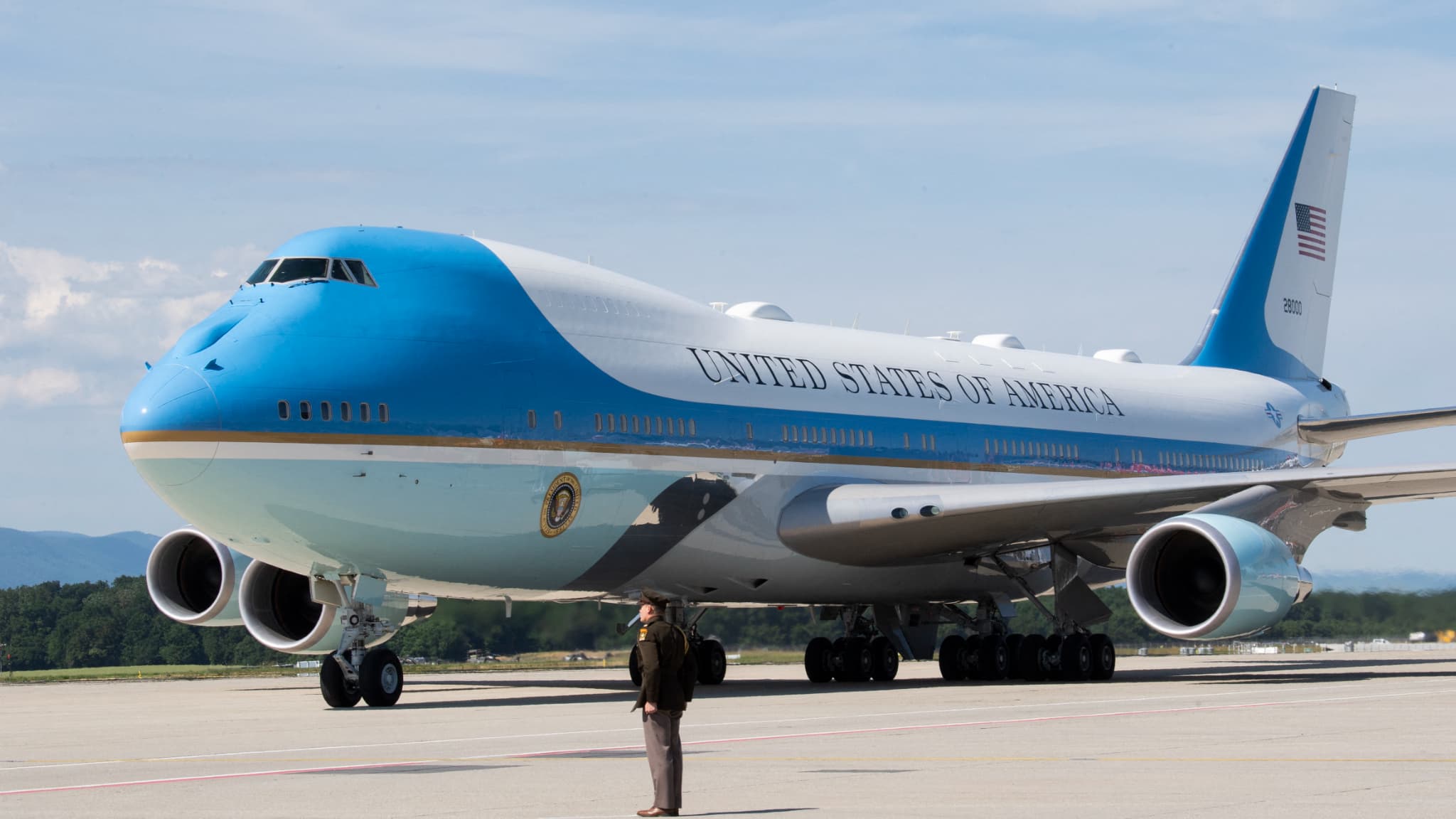Boeing is due to deliver two new planes to the White House at a price renegotiated by the former US president, but the health crisis has sent the cost skyrocketing by hundreds of millions of dollars.
Boeing shouldn’t have agreed to discuss contract terms for America’s Air Force One presidential plane again after criticism from Donald Trump, a decision that is costing it hundreds of millions of dollars today, the company boss estimated on Wednesday.
The newly elected former tenant of the White House had sharply criticized the price of more than 4 billion dollars for the original contract, which he considered too high, and asked Boeing to check his copy. The company finally reached a $3.9 billion “fixed price” deal with the Pentagon in February 2018 for two Boeing 747-8s.
“All I can say is that it was a very special time, a very special negotiation, a very special set of risks that Boeing probably shouldn’t have taken,” Dave Calhoun said in a conference call Wednesday.
The group must now “take over the associated costs,” added the managing director. In fact, Boeing had to book a $660 million provision on its books for the VC-25B program, as Boeing called its presidential plane.
Loss of more than a billion
The manufacturer has to deliver the devices at the agreed price, but has to bear higher costs from its suppliers to meet technical requirements and delays.
“We took risks not knowing that Covid-19 would strike and inflation would take hold,” Calhoun said.
The manufacturer had already booked additional costs of $168 million in 2020 and $318 million in 2021, bringing the total loss of the program to $1.1 billion for the time being. The contract includes the delivery of two 747-8s, which are larger, more modern, faster and less fuel intensive than the current 30-year-old 747-200.
Air Force One, which theoretically only bears this name when the American President is on board, allows the head of state to exercise all the prerogatives of his mandate while airborne, including launching a nuclear strike.

